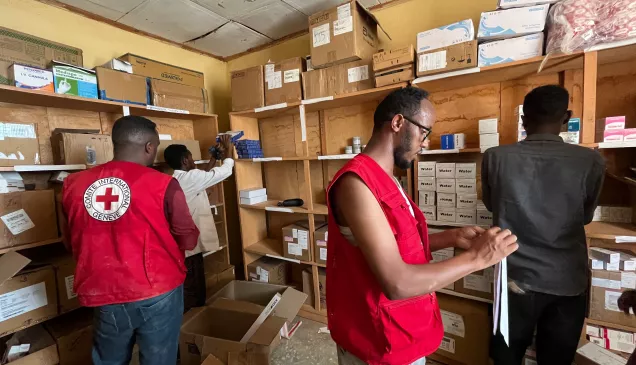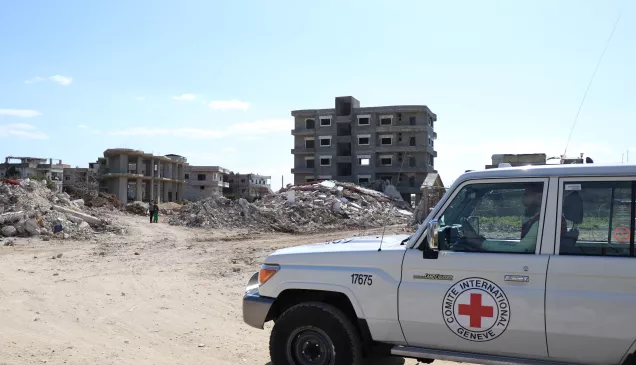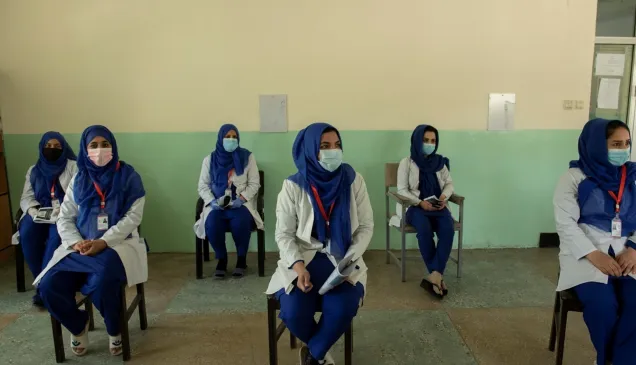The humanitarian consequences of a long-lasting armed conflict and the ICRC’s response in Donetsk and Luhansk since 2014
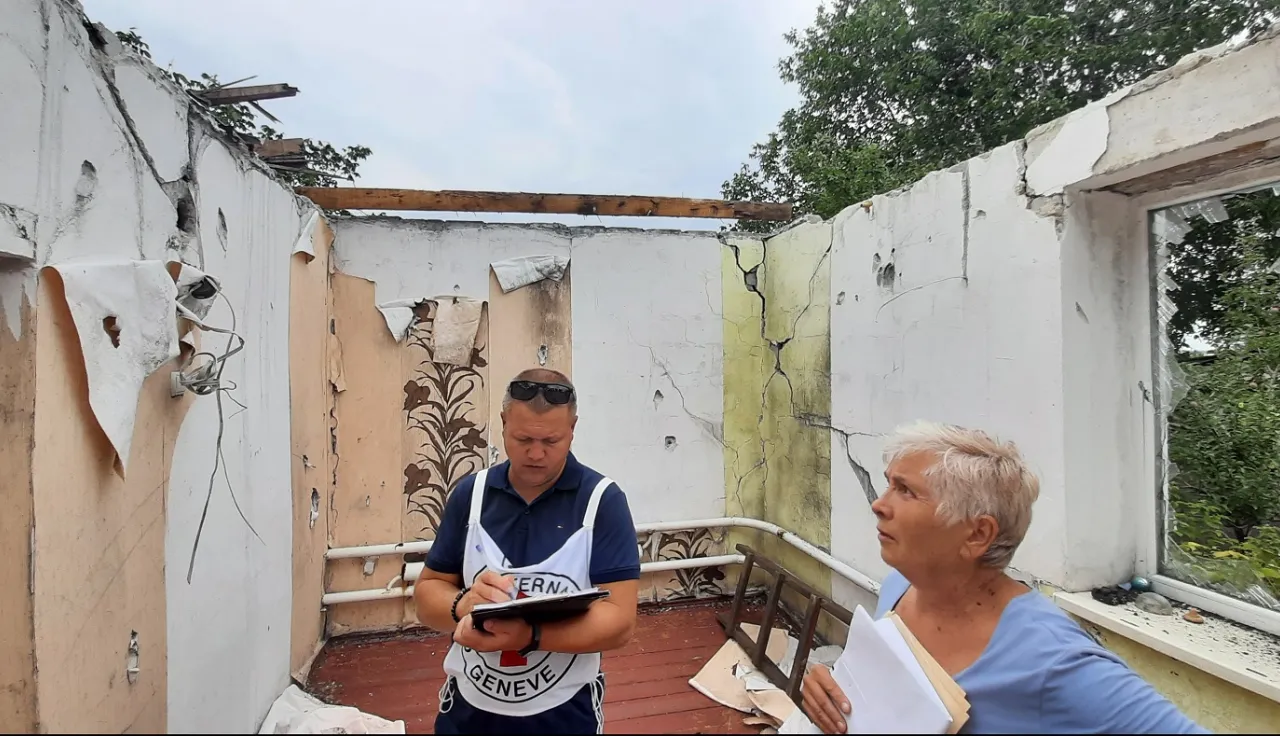
For people living in Donetsk and Luhansk regions, the past year of hostilities comes on top of nine years of grinding armed conflict.
In many places, intense fighting has severely damaged or destroyed schools, homes, medical facilities and other essential infrastructure like electricity and water facilities, disrupting lives of millions of people in the long run. For years, people living close to the frontline have struggled to access food, water, heating and medical care and many families have lost loved ones or seen them suffer severe injuries.
Since 2014, the ICRC has been supporting those communities, work that has evolved as frontlines shifted over time, especially after the escalation of the armed conflict last February. Since then, a large ICRC presence has remained in Donetsk and Luhansk to respond to the humanitarian needs there.
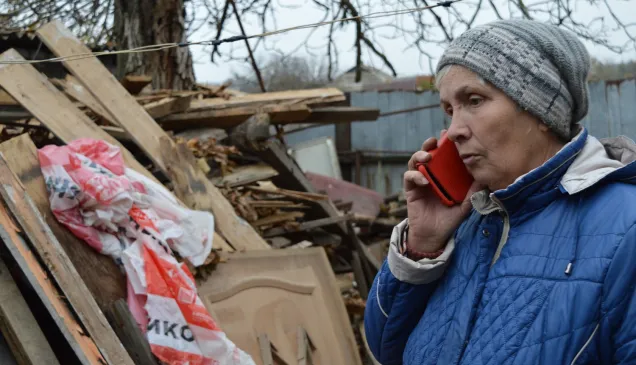
Nadezhda's house and all her belongings were destroyed in the midst of the conflict.
Last year alone, ICRC teams reached over 214,000 people with food and hygiene items, while 72,000 people received tarpaulins and plastic sheets to help patch holes and protect their homes. We also supported local actors in water network repair, benefitting 1.5 million people, and emergency water supplies to over 41,000 people in Donetsk, Mariupol and eight other locations.
In villages like Volnovakha, we restored heating, roofs, windows and doors in dozens of destroyed homes. In Donetsk, we supplied emergency construction materials to 5,500 households for temporary rehabilitation. To help people ward off the cold, we delivered 18,400 tons of coal to homes in frontline areas in Donetsk and Luhansk.
"I heard an explosion, and in the blink of an eye, everything collapsed on me. I looked up - the ceiling hung over me. I began to get out from under the rubble, through the labyrinth of the collapsed roof and broken furniture, huge nails sticking out of logs. The explosion was so strong that the door to the room was shattered in two parts," said Volnovakha resident Nadezhda. The ICRC provided building materials to help restore her home.
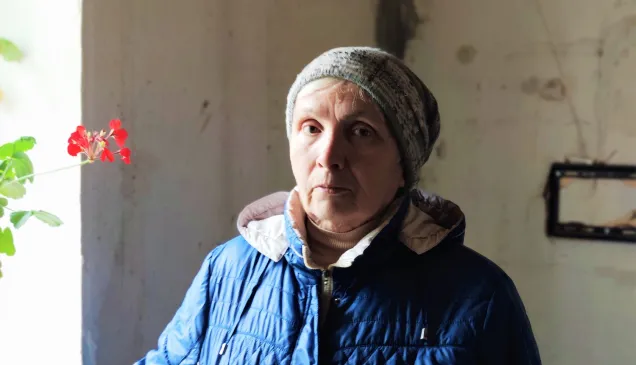
Nadezhda heard an explosion and in the blink of an eye, the roof of her home had collapsed on top of her.
Our work reflects the crude reality people have been living in for years, with heavy shelling resulting in the loss of lives and injuring thousands.
In Donetsk, we have supplied medicine and equipment to dozens of medical facilities so they are equipped to respond to emergencies. This comes on top of the regular delivery of medicines for the treatment of chronic diseases to 15 healthcare facilities, including 52,000 vials of insulin to support over 3,000 diabetes patients.
Of the thousands of heavy projectiles fired daily, hundreds of artillery shells do not explode, posing a major threat for communities. Common activities like planting a garden, children playing outside, or walking off an unpaved road take on a potentially deadly level of risk. Blasts can be fatal or cause injuries such as blindness, burns, damaged limbs, and deep shrapnel wounds.
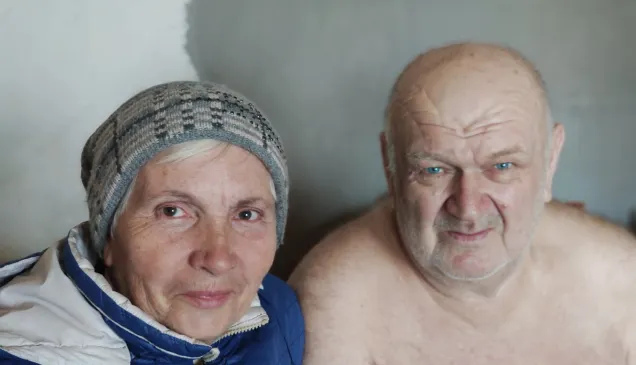
Nadezhda and her husband Vasily make a daily effort to recover, like thousands of others in Donetsk and Luhansk impacted by hostilities that have been ongoing since 2014.
Since 2014, the ICRC has supported demining efforts through the distribution of equipment to help reduce risks to civilians.
Last year we increased this support by distributing safety leaflets, mine risk awareness signs, and marking tape. Technical equipment and tools were donated to organisations responsible for humanitarian demining activities to reduce exposure of civilians to mines.
In 2022, ICRC teams in Donetsk and Luhansk continued their humanitarian work initiated in 2014, including:
- Provision of food parcels and hygiene kits to 200'000 people
- Support to 34 hospitals with medical equipment and surgical disposables
- Provision of wheelchairs, walking aids and custom-made orthopedic footwear to 805 patients and support to Luhansk prosthetic-Orthopedic plant
- Provision of potable water to 41'000 people in Donetsk, Mariupol and 8 more settlements, while 1,5 million people benefitted to water network repair done by ICRC, in support of water local authorities.

